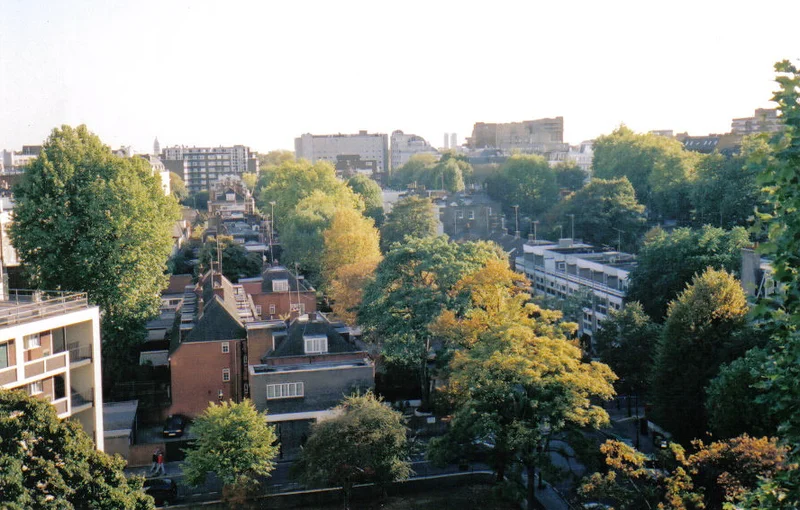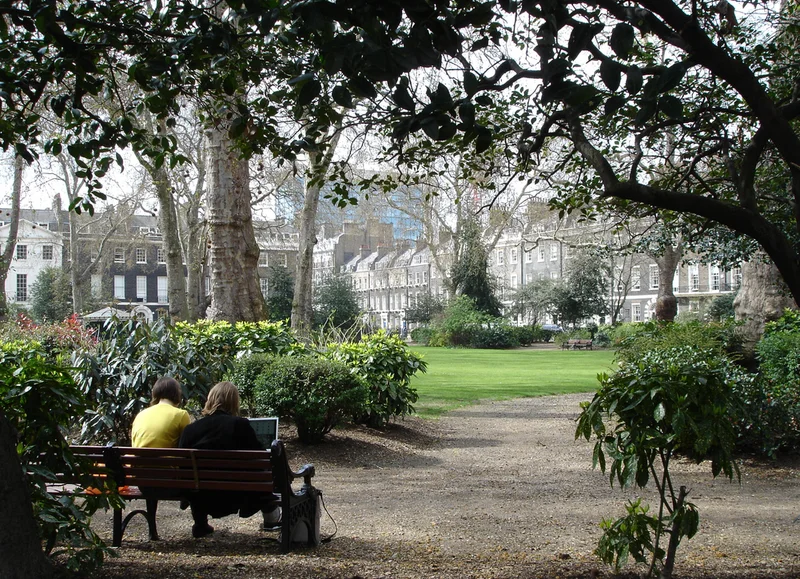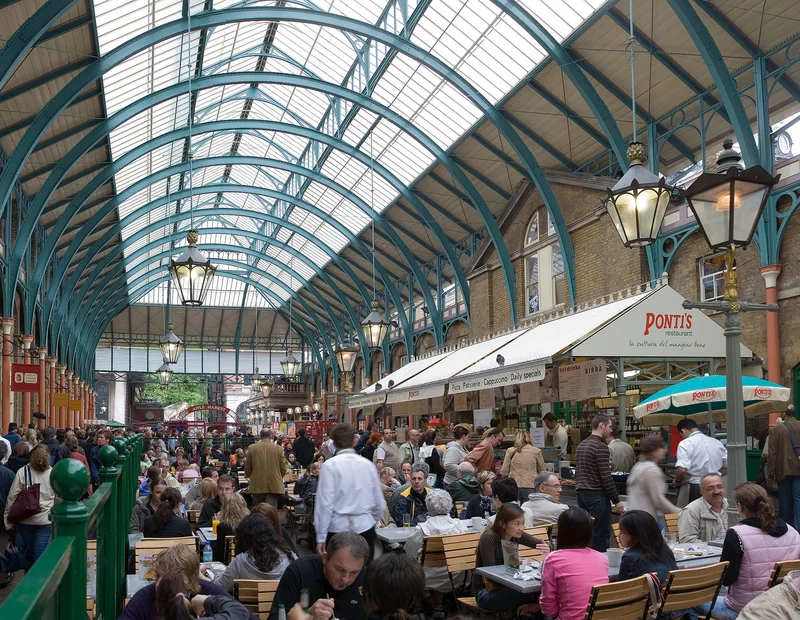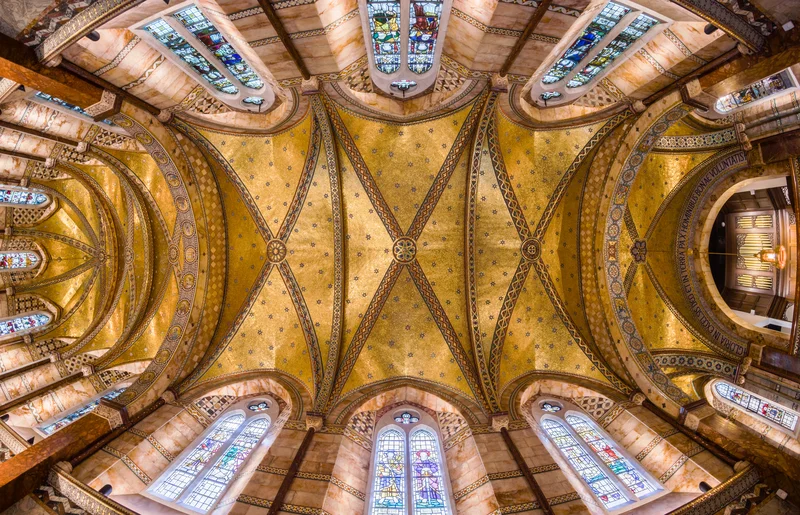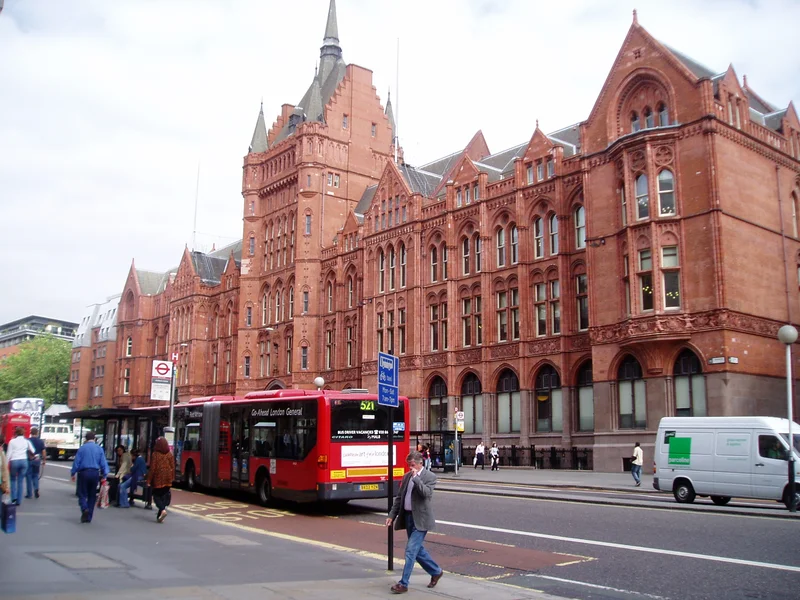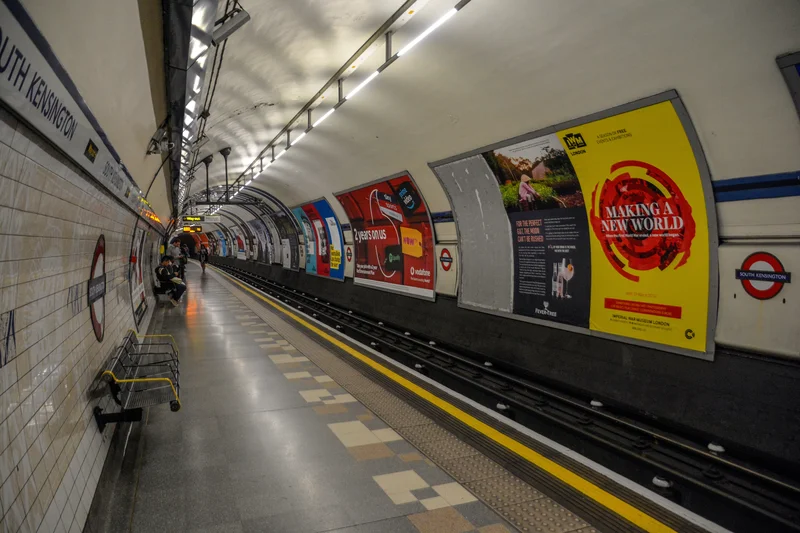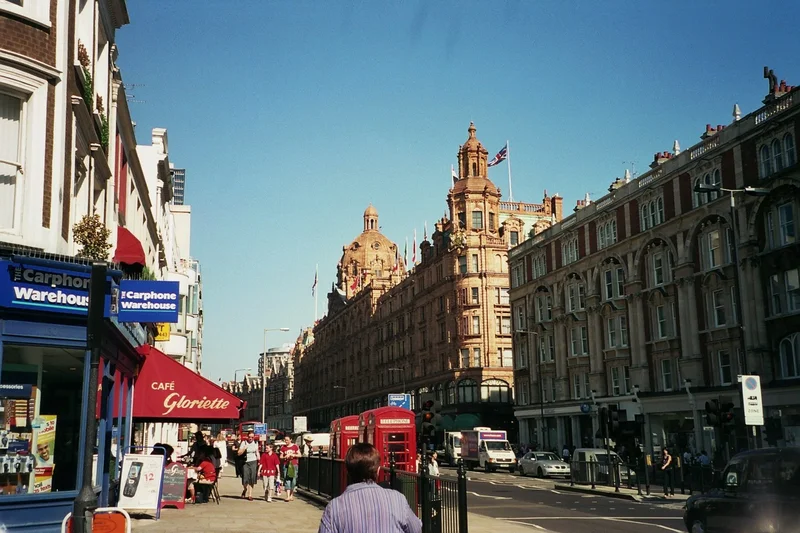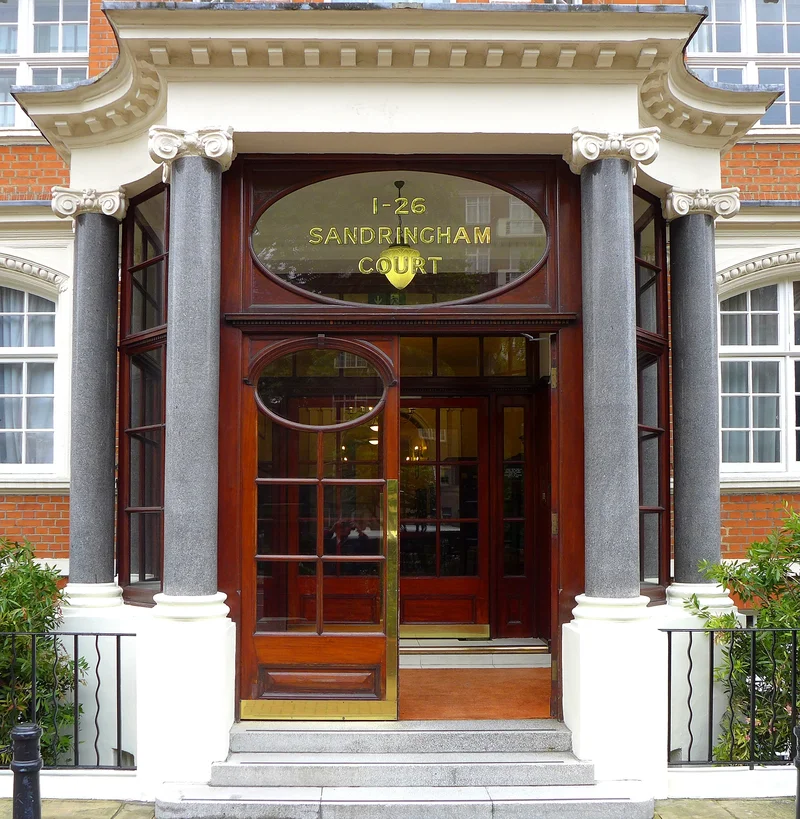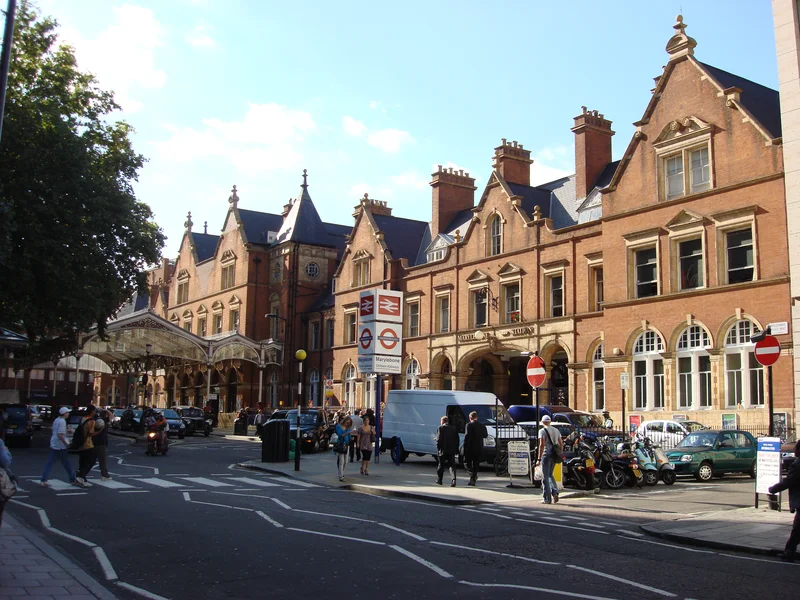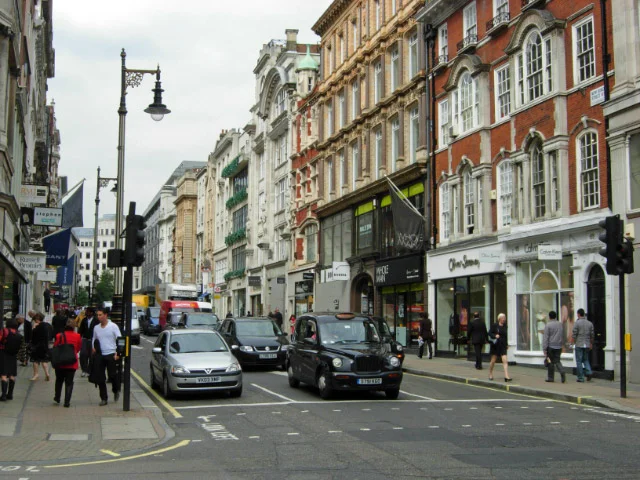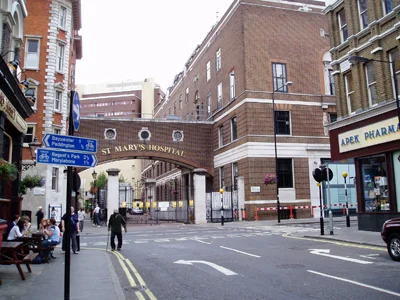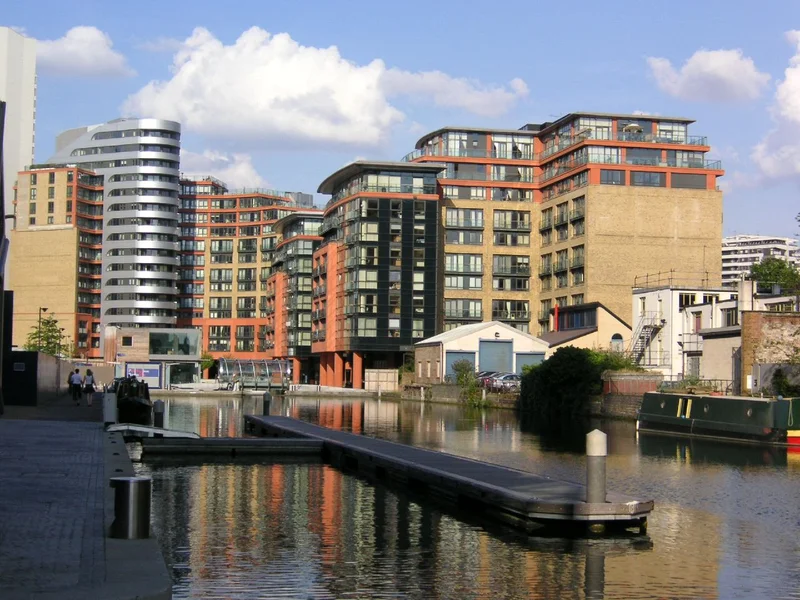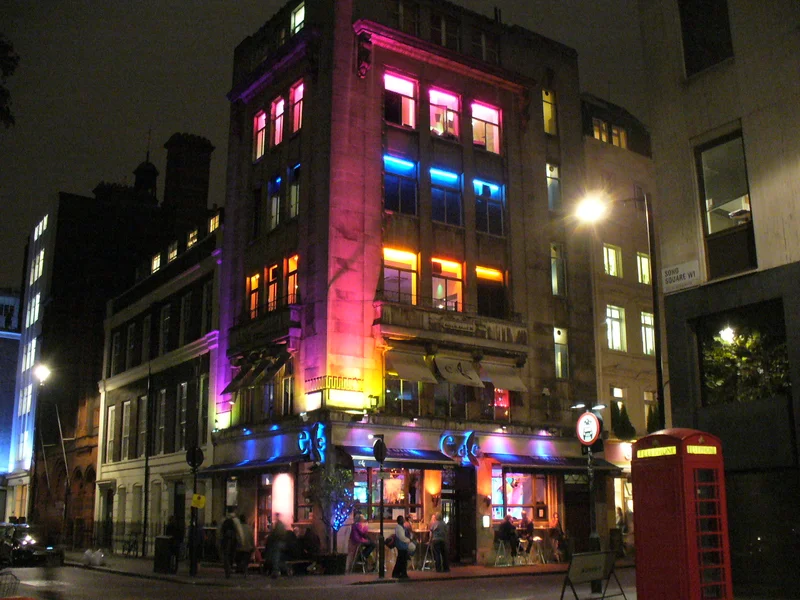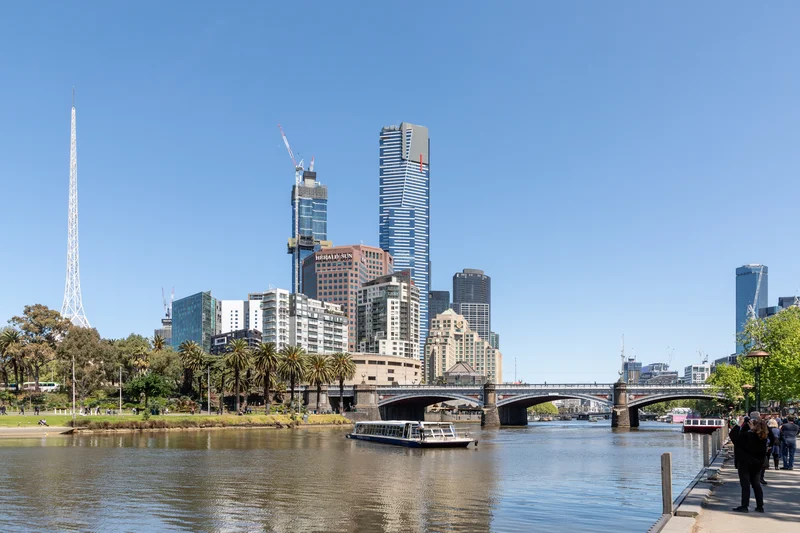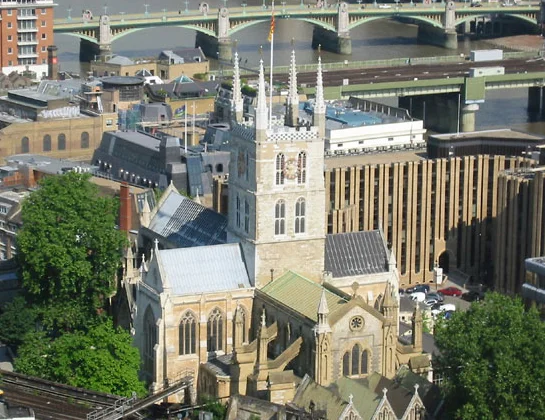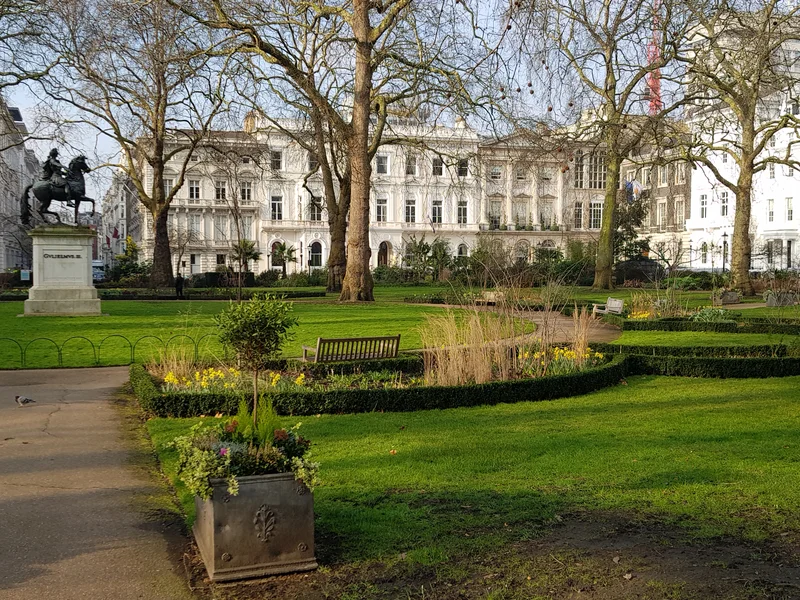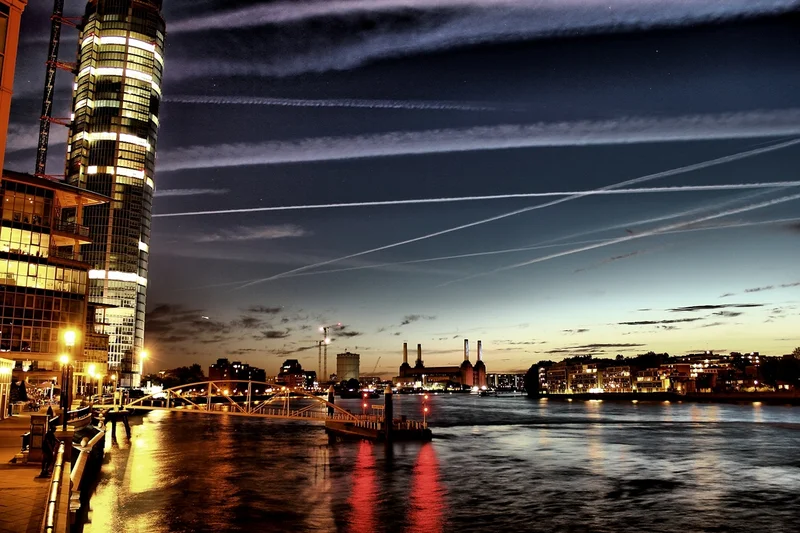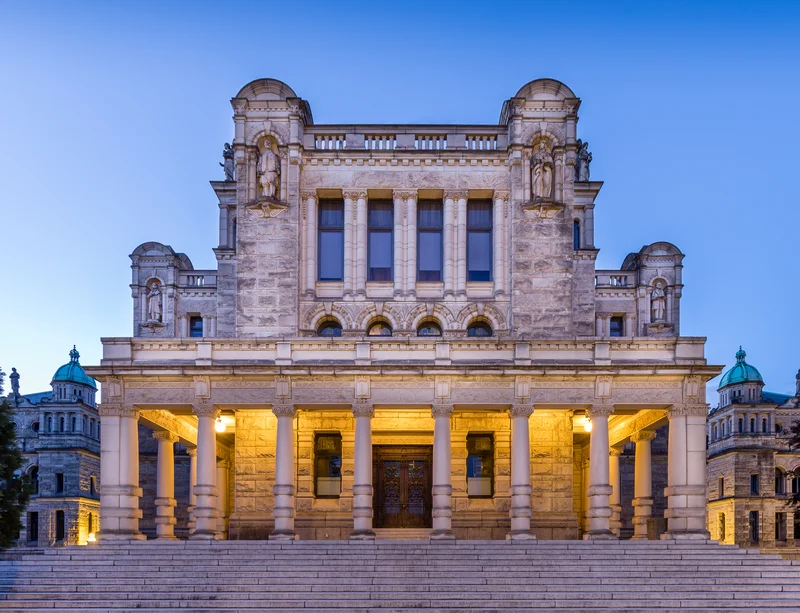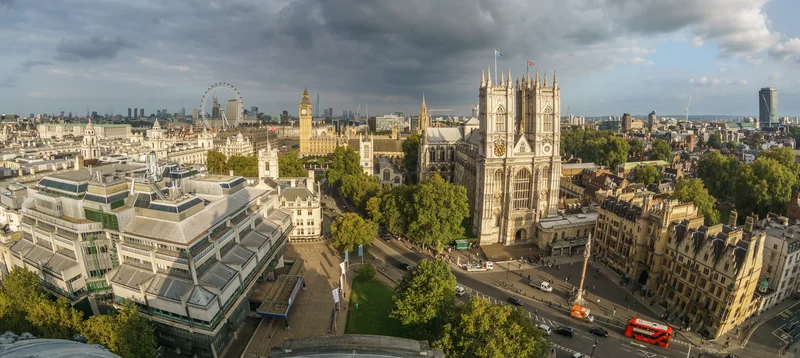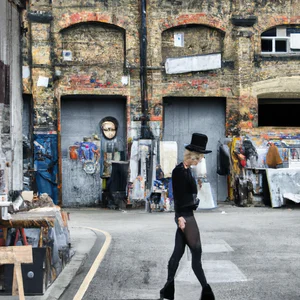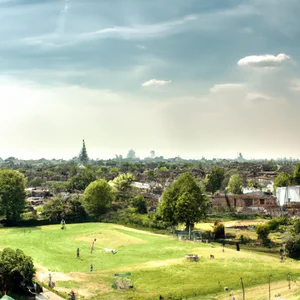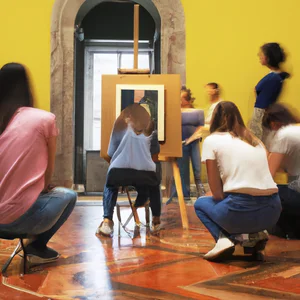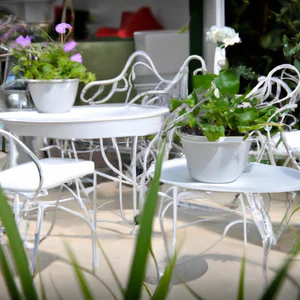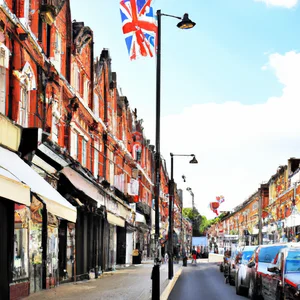Book your experience
New Scientist Live: The UK's largest science and technology festival
Oh, guys, have you heard of New Scientist Live? It’s basically the biggest science and technology festival in the UK. It is an event that, if you are passionate about science, you absolutely cannot miss, believe me!
Imagine a place where there are experts of all kinds, talking about everything from biology to the latest discoveries in artificial intelligence. It’s like a wonderland fair, but instead of candy and rides, there are amazing experiments and live demonstrations. And I honestly remember it well, because last year I went there with a friend and we were amazed by how much there was to see and do.
The thing that struck me the most? The robots! There were these little automatics that seemed to have a life of their own, and honestly, I’m not sure, but I think one of them even made me grimace! In short, it was a bit like being in a science fiction film. And I don’t want to forget the chats with the various scientists: they tell you about their research with a passion that makes you want to go back to school, like when you were anxiously waiting for science class as a child.
And then, oh, there were also some really heated debates on current issues. Like, I don’t know, the issue of climate change and new technologies to address it. It’s a hot topic, and the opinions were so different it was like being on a talk show!
In short, if you like the world of science, it’s really a place where you can get lost, but in a good way, eh! It’s like a breath of fresh air for the mind. And who knows, maybe you too might discover a new passion. So if you happen to be in the area during the festival, drop by. You won’t regret it!
Discover the innovation: Unmissable attractions at the festival
An encounter that changed my vision
I still remember the time I saw a robotics demonstration at New Scientist Live. A humanoid robot, programmed to interact with the public, answered questions on scientific topics in real time. The wonder I felt seeing the technology come to life before my eyes was indescribable. That day, I not only learned, but I also understood how fascinating and accessible innovation can be.
Attractions not to be missed
New Scientist Live, which takes place every year, is a concentration of discovery and innovation. Among the main attractions, don’t miss:
- The Science Garden, where live experiments will allow you to explore chemistry and physics in an interactive way.
- The conference stage, where world-renowned experts share the latest discoveries and research, making each talk a unique learning opportunity.
- Immersive zones, designed to give the public experiences ranging from virtual reality to biotechnology.
An insider tip
A little secret: visit the festival on weekdays if possible. While weekends can be crowded, weekdays offer a unique chance to interact longer with exhibitors and attend workshops without the pressure of crowds. It will allow you to savor every moment and every innovation.
Cultural and historical impact
New Scientist Live is not just a science festival; it is a reflection of the continuing evolution of scientific culture in the UK. Since its first edition, it has helped demystify science and made its intricacies more accessible to the general public, changing the way society perceives scientific discoveries. This festival is a bastion of an era in which science and technology are increasingly an integral part of everyday life.
Sustainable tourism practices
Attending events like New Scientist Live is a great way to support sustainable tourism practices. The festival encourages the use of public transport and offers digital information materials to reduce environmental impact. Consider cycling or using London’s public transport system to get to the event venue, contributing to a more responsible travel experience.
An experience worth trying
Don’t forget to try the drone building workshop! This hands-on experience will not only give you the chance to build your own small aircraft, but will also provide you with a first-hand understanding of emerging technologies in aviation. It’s an engaging and fun way to tackle complex topics.
Myths and reality
A common misconception is that the festival is intended only for science experts. In fact, New Scientist Live is designed for all ages and knowledge levels. Whether you’re a science enthusiast or a curious visitor, you’ll find inspiring and accessible experiences.
Final reflection
After my experience at New Scientist Live, I realized how essential it is to keep scientific curiosity alive. Science isn’t just for labs: it’s for all of us, and every innovation tells a story. Which innovation impressed you the most and how might it influence the way you see the world?
Close encounters with science experts
During my visit to the London science festival, I was struck by a moment that changed my perception of the scientific world. While I was exploring one of the dedicated areas, I had the opportunity to chat with an astrophysicist working on projects related to Mars exploration. His passion and his willingness to answer questions from curious people like me made the experience incredibly engaging. Close encounters with experts not only provide valuable information, but also offer the opportunity to see science through the eyes of those who practice it every day.
A unique opportunity
The festival is not just a place of exhibition, but a real hub of meaningful interactions. This year, the program includes lectures and roundtables with leading scientists, such as Dr. Brian Cox and Dr. Alice Roberts. It is essential to check the official festival website for up-to-date information on times and how to participate, as many of these sessions require advance booking.
A little-known tip: to avoid long lines, try to attend events at less crowded times, such as early morning sessions or late afternoon sessions. This will allow you to have more time to interact with the speakers and get answers to your questions.
Cultural and historical impact
Meeting science experts at the festival offers an enlightening window into the history of science and technology, not just in London, but globally. The tradition of sharing scientific knowledge dates back to the early days of the Royal Society, founded in 1660. Today, events like this continue to promote science education and encourage dialogue between scientists and the public, stimulating curiosity and innovation.
Responsible tourism
Participating in these events also offers an opportunity to practice sustainable tourism. Many experts are engaged in research projects that aim to solve environmental and social problems. Visiting the festival means supporting these initiatives, contributing to greater scientific and environmental awareness.
An immersive experience
Imagine listening to a lecture about the wonders of the universe, then moving on to a hands-on demonstration of scientific experiments. The London science festival isn’t just observation; it is an experience that involves all the senses. I highly recommend trying the “Meet Your Scientist” activity, where you can book a personal meeting with an expert in a field of your interest.
Myths and misconceptions
A common misconception is that science is an inaccessible and elitist field. In reality, events like this dispel the myth, demonstrating that science is for everyone. The experts are excited to share their findings and are open to any questions, big or small.
Final reflection
As you leave the festival, ask yourself: How can science influence your daily life? The next time you come across a natural phenomenon or technology, consider how science helps us understand and improve the world around us. Curiosity and dialogue are key elements to building a better future, and this festival is just the beginning of a journey that can enrich our lives.
Interactive activities for all ages: Discover science in a playful way
An unforgettable experience
I still remember the first time I attended a science festival. The bright colors of the installations, the smell of popcorn and the sound of laughter filling the air were just the beginning. As I ventured through the various attractions, I found myself in front of a large interactive screen that showed how our body reacts to different stimuli. The children’s eyes sparkled with curiosity as they touched the screen, and in that moment I understood that these activities are not just for little ones, but for anyone who wants to discover.
Practical information
The festival takes place in one of the most fascinating areas of London, South Kensington, easily reachable by tube. Interactive activities are designed to engage visitors of all ages, from robotics workshops for kids to science experiments for adults. Don’t forget to also visit the festival’s official website for details on times and reservations, which may be necessary for some attractions.
An insider tip
If you want a truly unique experience, look for “Science Under the Stars” sessions, where you can participate in experiments in the dark with fluorescent lights and glowing materials. This often overlooked event offers a completely different perspective on science. It’s not as advertised as other attractions, but attendees always leave excited and amazed.
The cultural impact
Interactive activities aren’t just fun; they represent a bridge between science and the public. In an era where science education is crucial, these events promote curiosity and learning from a young age, helping to form a more informed and aware society. The festival also has a long tradition of collaborating with local schools and universities, strengthening the connection between education and community.
Responsible tourism practices
Participating in these interactive activities is a great way to approach science in a responsible way. Many stands and workshops use recycled materials and sustainable technologies to reduce the festival’s environmental impact. Being part of an event that promotes sustainability is a choice that every traveler should consider.
Soak up the atmosphere
Imagine walking among colorful stands, listening to the sound of chemical explosions and the contagious laughter of children. The vibrant festival is an experience that stimulates the senses and invites you to explore the world of science in an immersive way.
An activity not to be missed
Don’t miss the opportunity to participate in one of the fun chemistry workshops. Here, you can mix ingredients to create surprising chemical reactions, perfect to amaze even the most skeptical. It’s an experience that will make you feel like a child again, rediscovering the wonderful world of science.
Myths to dispel
A common misconception is that science activities are boring or too complicated. On the contrary, the festival demonstrates that science can be incredibly fun and accessible. Hands-on interactions make learning engaging, dispelling the myth that science is only for experts.
Final reflection
Have you ever wondered how fascinating the world of science can be when presented in a playful way? Participating in these interactive activities not only enriches your knowledge, but invites you to look at the world with new eyes. What aspect of science intrigues you most?
Little-known history of the Science Museum
The first time I set foot in the Science Museum in London, I remember being fascinated not only by the displays, but also by the history that permeated every corner of this extraordinary place. While I was admiring an ancient aircraft, the museum keeper told me a little-known story: during the Second World War, the museum was used as a refuge for the London population, a true outpost of hope in times of uncertainty. This revelation transformed my visit from a simple exploration to a journey through time, making me feel part of a larger narrative, imbued with resilience and innovation.
A journey through time
Located in the heart of South Kensington, the Science Museum is much more than just a collection of scientific objects; it is a monument to human curiosity and discovery. Inaugurated in 1857, the museum has seen the passage of generations of visitors, each of whom has contributed to writing its history. Exhibits range from ancient scientific instruments to contemporary innovations, paying homage to the pioneers of science and technology.
- Little-known facts: The astronautics exhibition includes an original lunar module, the “Lunar Module”, which actually traveled into space. It’s incredible to think that a piece of space history is available for all of us to admire and understand its importance.
An insider tip
A little-known tip for visitors is to look for the “Whipple Museum of the History of Science”, which is located within walking distance of the Science Museum. This little gem hides a fascinating collection of historic scientific instruments that often goes unnoticed by tourists. You may discover measuring instruments and devices that marked the transition from alchemy to modern chemistry.
Cultural and historical impact
The history of the Science Museum is inextricably linked to the growth of science and technology in the UK. It has hosted historic events, conferences and exhibitions that have influenced the international scientific community. The museum serves as a bridge between the past and the future, inspiring new generations to explore and innovate.
Sustainability and responsibility
Visiting it with a keen eye on sustainability is a way to honor the museum’s mission. Many of its exhibits are designed to educate the public about environmental issues and sustainable science. You might also consider using public transport to reach the museum, thus helping to reduce the environmental impact of your trip.
An experience not to be missed
Be sure to visit the “Explorable Gallery”, an interactive area where children and adults can experience science in a hands-on way. Here, visitors can engage in live experiments and scientific challenges that stimulate curiosity and creativity.
Myths and misconceptions
A common misconception is that the museum is only for “science geeks.” In fact, it is a place of discovery and enjoyment for everyone, regardless of age or background. Each visit can be an opportunity for learning and entertainment.
A personal reflection
As I walked among the exhibits, I asked myself: what other stories does this museum hide, invisible to the eyes of those who pass by? Every object, every exhibit has a profound meaning, and the true beauty of the Science Museum lies in its ability to make us reflect on our connection with science and history. Don’t miss the opportunity to discover the little-known history of this extraordinary place and be part of it.
Tips for a sustainable trip to London
An enlightening personal discovery
I remember my first visit to London, when, after a long day of exploring the historic monuments and lively streets of Camden, I found myself reflecting on the impact tourism has on our planet. At that moment, I decided to dedicate my trip to discovering how to explore this wonderful city in a sustainable way. Since then, I have learned that London offers many opportunities to travel responsibly while preserving the beauty of its culture and environment.
Sustainable practices for your stay
When it comes to sustainable tourism in London, there are some key practices to consider:
- Use public transport: London’s transport network is among the most efficient in the world. Choose to travel by subway, bus or shared bike to reduce your environmental impact.
- Stay in eco-hotels: Several accommodation facilities, such as the Hotel Zetter or The Hoxton, have adopted sustainable practices, such as the use of renewable energy and recycled materials.
- Eat local: Look for restaurants that use locally sourced and seasonal ingredients. Don’t forget to check out markets like Borough Market, where you can find fresh, sustainable produce.
An insider tip
A little-known trick for traveling sustainably in London is to take advantage of Free Cycle Day, a monthly event where cyclists can explore the city traffic-free. A perfect opportunity to discover hidden corners while helping to reduce pollution.
The cultural impact of sustainable tourism
London has a rich history of innovation and change. In recent years, the city has made great strides to promote responsible tourism, which not only safeguards the environment but also supports local communities. For example, supporting initiatives such as The London Wildlife Trust helps preserve urban green spaces, which are crucial to the city’s biodiversity and health.
Responsible tourism practices
When you visit London, don’t forget to respect the environment. For example, carry a reusable water bottle with you to reduce plastic use. Many public places, like the Science Museum, offer drinking water fountains, making it easy to stay hydrated without contributing to the plastic problem.
Immerse yourself in the London atmosphere
Imagine cycling along the Thames, with the sun rising behind the Tower Bridge, while the birds sing and the fresh air envelops you. Every pedal stroke is a gesture of love towards this city, which welcomes you with its diversity and history.
An activity worth trying
For a truly unique experience, take an eco-friendly walking tour with Greenwich Tours. You will discover not only historical monuments, but also fascinating stories about sustainability and the impact of climate change on the city.
Myths and misconceptions
A common misconception is that traveling sustainably is expensive or complicated. In fact, many of the greenest options are also the cheapest, such as walking or using public transportation. With a little planning, you can have an authentic experience without emptying your wallet.
A final reflection
As you plan your trip to London, ask yourself: How can I help preserve the beauty and culture of this city for future generations? Embracing a sustainable approach will not only enhance your experience, but will also have a positive impact on the world that surrounds you. surrounds us.
Evening events: Science and entertainment in one fell swoop
An unforgettable experience under the stars
I still remember my first visit to the London science festival, when the lights went out and the Science Museum was transformed into a stage of wonder. As I strolled through the exhibits, a group of scientists, armed with LED lights and interactive screens, began presenting live experiments, capturing the attention of adults and children. Their faces shone with enthusiasm, as science was intertwined with elements of entertainment, creating a magical atmosphere that transcended simple curiosity.
Practical information so you don’t miss the opportunity
During the festival, evening events are a must. Typically held on weekends, they feature a variety of activities, from themed talks to live shows, such as “Science Comedy Night,” where established comedians tell science stories with a dose of humor. To stay up to date, visit the official festival website Science Museum or follow their social channels for detailed programming.
An insider tip
Here’s a little-known tip: Many evening events offer discounted tickets if purchased in advance online. Also, don’t forget to check for question and answer sessions with experts; these are often the most valuable opportunities to interact directly with the bright minds at the festival.
A significant cultural impact
The integration of science and entertainment has deep roots in British culture. Historically, events such as the Royal Institution Christmas Lectures have sought to make science accessible and fascinating to the public. This tradition continues to live on in the festival, helping to demystify science and promote curiosity among new generations.
Sustainability and responsibility
Attending evening events at the festival is also an opportunity to practice sustainable tourism. The Science Museum works with local suppliers to ensure that the food and drinks served during the festival are locally sourced. This not only supports the local economy, but also helps reduce environmental impact.
An engaging atmosphere
Imagine finding yourself in the heart of London, surrounded by an enthusiastic crowd, as the sun sets behind the historic walls of the museum. The aroma of popcorn and other local delicacies pervades the air, while the sound of laughter and applause fills the space. The atmosphere is vibrant, and every corner of the museum seems to come to life with discoveries and innovations.
An unmissable activity
Don’t miss the “Silent Disco Science”, an event where all participants wear wireless headphones and can choose between different channels offering scientific explanations accompanied by music. It is a unique and immersive experience that combines dance and learning in one fell swoop.
Myths to dispel
A common misconception is that evening events are only for experts or science enthusiasts. In fact, they are designed to be inclusive, with activities and shows that can fascinate anyone, regardless of their level of scientific knowledge.
A final reflection
Attending the science festival evening events is not just an opportunity to learn; it is an invitation to explore the world around us with new eyes. What kind of discoveries do you expect to make when science meets entertainment?
Food and Drink: Local taste at the festival
A journey of flavors
I still remember my first visit to the London science festival, when, after a long day spent exploring incredible scientific innovations, I found myself enjoying a very curious dish of fish and chips served in a food truck near the Science Museum . The freshness of the fish, combined with the perfect crunchiness of the chips, made that moment an indelible memory, combining my passion for science with that for cooking local.
Discover culinary delights
During the festival, visitors can venture on a food tour that ranges from traditional British favorites to innovative dishes prepared by emerging chefs. Don’t miss the chance to try local specialities, such as the Pimm’s Cup, a refreshing cocktail that represents the essence of the British summer. According to a recent article in the London Evening Standard, this year’s food trucks will also feature vegetarian and vegan options, ensuring that every palate can find something delicious.
An insider tip
If you want a truly unique dining experience, look for a pop-up small restaurant offering a tasting of science-inspired dishes. These chefs, often gastronomy students, create dishes that not only delight the palate, but also tell a story through the ingredients. It’s a way to combine the science of cooking with the culinary art.
The cultural impact of food
Food is a reflection of a place’s culture, and during the science festival, this is especially evident. British culinary tradition, with its deep roots and global influences, mixes with scientific innovation, creating an experience that goes beyond the simple meal. This festival is not just a scientific event; it’s also a way to celebrate the diversity of flavors London has to offer.
Sustainability and responsibility
In an age where sustainability is key, the festival encourages responsible consumption practices. Many of the food vendors use organic and local ingredients, thus reducing the environmental impact. Buying food from local producers not only supports the economy, but also contributes to a healthier and more sustainable community.
Immerse yourself in the flavors
For an unforgettable experience, don’t forget to attend an interactive cooking workshop during the festival. These events will allow you to learn innovative culinary techniques, all while exploring the connection between science and gastronomy.
Dispelling the myths
A common misconception is that festival food is always of poor quality. In fact, many of London’s top chefs use this platform to experiment with new dishes, offering visitors a great dining experience.
A final reflection
As you enjoy a delicious bite, ask yourself: How can science improve our understanding of food and nutrition? The answer may surprise you, revealing a world of culinary discoveries just waiting to be explored. Who knows, you might return home inspired to experiment in the kitchen, combining flavor and science into one experience!
Immersive experiences: Beyond simple observation
One September afternoon, while exploring the wonders of New Scientist Live, I found myself in a crowded room where a neuroscience expert was illustrating the secrets of the human brain through a series of interactive experiments. It wasn’t just another conference; it was a fascinating journey that made me feel an integral part of the discovery. The energy in the air was palpable, and every participant seemed fascinated, as if the line between observer and scientist had dissolved.
Total immersion in science
At New Scientist Live, immersive experiences go far beyond simple observation. Here, visitors are not just passive; they are leading actors on the stage of science. The installations are designed to involve all the senses: from virtual reality that allows you to explore the solar system, to simulations that make the complex theories of quantum physics tangible. Guests can interact with 3D models, participate in robotics workshops and watch hands-on demonstrations that bring science to life.
An insider tip
If you want to have a truly unique experience, I recommend taking part in one of the scientific “Escape Rooms” that are set up during the festival. These challenges, designed by scientists and engineers, will allow you to solve scientific puzzles, working side by side with experts. This playful approach will help you understand complex concepts in a fun and stimulating way.
Cultural and historical impact
The tradition of making science accessible and engaging has deep roots in the UK. Since the 19th century, scientific expositions have been a way to educate and inspire the public, and New Scientist Live represents the pinnacle of this legacy. The event not only celebrates scientific breakthroughs, but also encourages a culture of curiosity and innovation that is essential to human progress.
Sustainable and responsible tourism
In a time when responsible tourism is more important than ever, New Scientist Live is committed to minimizing environmental impact. The facilities feature sustainable practices, such as recycling materials and using local suppliers for food and beverages. Participating in this festival not only enriches your knowledge, but also contributes to a greater cause: the protection of our planet.
A call to action
Imagine completely immersing yourself in science, not just through observations but with hands-on experiences that stimulate your ingenuity. We invite you to try the innovative synthetic biology laboratory, where you can manipulate microorganisms in a safe and controlled environment. It will be a unique opportunity to get hands-on and discover the potential of science firsthand.
Final reflection
Many think that science is a distant field reserved for a select few, but New Scientist Live proves that it can be an accessible and engaging experience for everyone. What is the most fascinating idea you have discovered about science? It may be time to explore new perspectives and embrace the wonderful world of knowledge.
The power of the scientific community: Uniting minds
When I entered New Scientist Live last year, I felt as if I had entered a modern knowledge bazaar. The thing that struck me most was the collective vibration of enthusiasm and curiosity that hovered in the air. People of all ages wandered around, united by a passion for science and technology. I found myself chatting with a group of college students sharing innovative ideas on how to address environmental challenges, and I thought: this is the true power of the scientific community.
A stimulating environment
The beauty of this festival is that it offers a stage for brilliant and curious minds of all ages. Not only do industry experts have the opportunity to share their findings, but visitors can also interact directly with them. I attended question-and-answer sessions covering topic areas ranging from artificial intelligence to sustainability. The speakers were available and open, ready to discuss their research and answer curious questions. It’s an experience that encourages interaction and creates connections between scientists and enthusiasts.
An insider tip
If you really want to immerse yourself in this community spirit, don’t miss the informal networking areas. Often, after conferences, there are meeting moments, where scientists and participants meet to discuss over a coffee. It is there that brilliant ideas and unexpected collaborations are generated. Don’t be afraid to reach out and ask questions; every conversation can lead to new discoveries.
The cultural and historical impact
New Scientist Live is not just a festival, but a witness to the growing importance of science in our daily lives. In an age where misinformation is rampant, events like this serve as a beacon, uniting minds to address global challenges. This festival represents a step towards a more informed and aware society, where science is at the center of decisions.
Responsible tourism practices
Attending events like New Scientist Live is also a way to support sustainable tourism practices. Many exhibitors and speakers focus on sustainability and responsible innovation, offering practical solutions to contemporary problems. Opting for public or shared transport to get to the festival is not only eco-friendly, but also allows you to explore London in a more authentic way.
An invitation to discovery
If you are looking for an experience that combines knowledge and entertainment, New Scientist Live is the event for you. Don’t just listen; participate actively in discussions, explore exhibitions and be inspired by the ideas around you.
What is your opinion on scientific collaboration? Do you think events like this can really make a difference in our future? Science is an adventure that unites us, and New Scientist Live is the perfect place to start this journey!
Tips for a unique and memorable experience
I still remember the first time I attended a science festival in London – the excitement in the air was palpable. Between a chemical experiment and a dancing robot, I found myself chatting with a young scientist who, with passion, talked about his research on food sustainability. That conversation opened doors to a world of knowledge I never imagined I would explore in such a festive setting.
Planning and convenience
To make your festival experience truly memorable, it’s essential to plan ahead. Check the program of events on the official festival website to make sure you don’t miss unmissable conferences or workshops. Many events also offer the option to book tickets online, allowing you to avoid long queues. Also, consider using public transport to get around: London is well connected and public transport is a sustainable way to explore the city.
An insider tip
One of the hidden gems of the festival is the “Science Café”, where scientists and visitors can meet in an informal atmosphere. Here, you can ask questions and explore topics you are passionate about; often, speakers are more willing to share personal anecdotes and practical advice. This space, often overlooked, can prove to be an unmissable opportunity to come into direct contact with the protagonists of science.
A profound cultural impact
The science festival is not just a recreational event, but represents an important showcase for scientific culture in the United Kingdom. For decades, it has promoted scientific education and encouraged interest in research, contributing to forming a more informed and critical society. Science, therefore, becomes a bridge between different communities, promoting greater mutual understanding.
Sustainable tourism practices
Make sure you adopt responsible tourism practices during your stay. Try to use reusable bottles and participate in local initiatives that promote sustainability. For example, many catering companies at the festival offer organic and locally sourced food, a delicious way to support the local economy and reduce your environmental impact.
Soak up the atmosphere
The festival is a kaleidoscope of colours, sounds and smells that involve all the senses. Imagine walking among vibrant stands, while the scent of popcorn and sweets guides you towards a fun physics laboratory. Every corner seems to tell a story, and every experience is an invitation to explore the wonderful world of science.
An activity not to be missed
If you are a technology enthusiast, don’t miss the robotics workshop for beginners. Here, you will not only learn how to build a simple robot, but you will also have the chance to compete in a small challenge with other participants. It’s a fun and interactive way to dive into the heart of science!
Myths and misconceptions
A common misconception is that science is only for “geniuses” or those with an academic background. Instead, the festival is designed to be inclusive and accessible to all, regardless of knowledge level. The goal is to stimulate curiosity and make science fun!
In conclusion, I invite you to reflect: what personal discovery could you make by participating in an event like this? Science is everywhere, ready to reveal itself to those willing to explore. Let yourself be surprised!

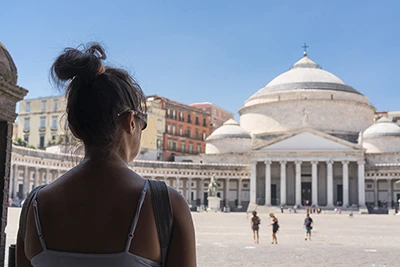 Architecture and Design
Architecture and Design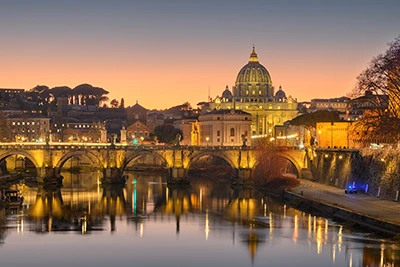 Cities and Regions
Cities and Regions Culture and History
Culture and History Events and Festivals
Events and Festivals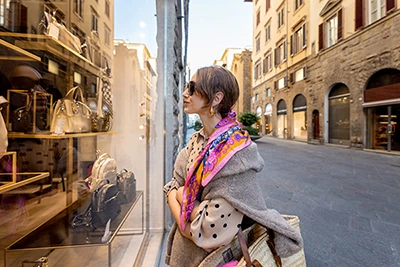 Fashion and Shopping
Fashion and Shopping Food and Wine
Food and Wine Nature and Adventure
Nature and Adventure Unique Experiences
Unique Experiences